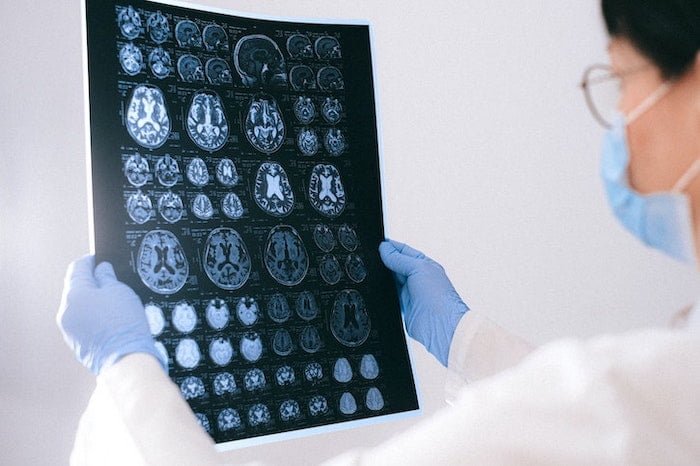Alcoholism Causes and Risk Factors
Quick links for Alcoholism Causes and Risk Factors
- Alcoholism causes, risk factors and the brain
- A multitude of alcoholism causes and risk factors
- What are the alcoholism causes and risk factors?
- Specific alcoholism causes and risk factors
- Treating alcoholism causes and risk factors
- References for alcoholism causes and risk factors
Alcoholism, or alcohol use disorder, involves the sustained abuse of alcohol to the point where an individual’s body becomes dependent on it in order to function.
The substance becomes the most important thing in an individual’s life, and despite the negative effects on their physical and mental health, they are unable to stop drinking.
As with other addictions, the use of alcohol changes the body’s chemistry so that it cannot function the same without it.
The brain is therefore encouraged to keep turning to alcohol, trapping an individual in a harmful, repetitive cycle.
Such a deep-rooted dependency can become extremely difficult to treat, requiring effective and professional alcohol rehab.
Alcoholism causes, risk factors and the brain

Doctor looking at a brain scan
Within the brain, the cause of alcohol use disorder is well understood.
When an individual drinks alcohol, dopamine is released into the brain. This hormone creates the sensation of pleasure, and the brain is programmed to remember how this was achieved.
As a result, the brain recalls the effect of alcohol, and encourages an individual to drink again when they want to feel good.
Over time and after sustained use, this association develops more and more until drinking becomes an almost involuntary act.
After so much use, the body begins to arrange its chemical balance around the presence of alcohol. It is then unable to cope when the substance is taken away, and this causes withdrawal symptoms, such as nausea, intense anxiety and diarrhoea.
To reduce the pain and discomfort of these symptoms, an individual again turns to alcohol, sustaining their addiction.
A multitude of alcoholism causes and risk factors

Two people discussing alcoholism causes and risk factors
While it is known how alcohol use can quickly turn into an unhealthy addiction, it is not fully understood how alcoholism is ultimately caused.
There is no single reason why some are more inclined to drink than others, or why some people are more susceptible to the influence of alcohol’s effects.
There are theories to suggest that genetics play a role, and there are also schools of thought which deem an individual’s socialisation and environment to be the primary trigger.
In reality, there are many factors that combine within each individual case to determine whether alcoholism will be prevalent or not.
There is no pre-determined result if one factor is present, but a complex interaction of several factors which increases an individual’s chances.
What are the alcoholism causes and risk factors?

Patient and medical professional discussing alcoholism causes and risk factors
Below, we outline some of the known risk factors associated with alcoholism:
1. Biology
It has long been thought that alcoholism can be partially genetic, and an individual’s biology can be a large factor in whether they develop the condition or not.
While the argument does not necessarily state that an individual with certain genes is pre-disposed to become an alcoholic – regardless of their upbringing or personality – studies show that an individual’s genetics can significantly contribute towards the likelihood of it happening. [1]
There is no single gene or chromosome responsible, but around 50 genes have been noted to influence an individual’s potential to develop alcoholism.
An individual’s brain may genetically possess more of the chemicals that make it susceptible to alcohol abuse, or it may have less control over impulsive behaviour, which in turn could lead to erratic or uncontrollable drinking.
Inherited genes can affect how much pleasure a person gets from alcohol, how badly they suffer from hangovers, or how likely they are to stop drinking once they have already started.
While these traits are handed down genetically, the process of inheriting the condition is very complex and not very well understood. Biology is therefore only responsible to some degree for the likelihood of an individual becoming addicted to alcohol.
2. Environment
On the other side of the coin, the chances of developing alcoholism can also be influenced by how an individual is raised in the world, their interactions with people and what they experience.
The influence of an individual’s environment has been identified as a risk factor for many conditions, and alcoholism can be partially determined in a similar way by factors such as:
- How an individual is raised to perceive alcohol
- How close an individual lives to an alcohol-selling establishment
- Whether any friends or family members consume large quantities of alcohol
- How much disposable income an individual has for alcohol
- What views an individual’s nation, culture, or religion holds on alcohol
Factors do not necessarily have to specifically involve alcohol.
An individual’s relationship status, employment situation and personal happiness can all have a significant influence.
If an individual is raised or conditioned to either perceive alcohol as a normal thing to consume in large amounts or see alcohol as a viable means of dealing with their problems, then alcoholism has a higher chance of developing.

People having a serious conversation about alcoholism causes and risk factors
3. Personality
Often a combination of biology and environment, an individual’s personality plays a large part in whether alcoholism develops.
Individuals who are more likely to take risks, cave into peer pressure, or want to please others are more likely to abuse alcohol.
Alcohol is often seen as a way to achieve something, and it can be abused if perceived as a way to have fun or take risks.
Stress is a large reason why many turn to alcohol in the first place, and so how an individual manages stressful situations can also be important.
Those who are good at remaining calm and working things through, for example, are far less likely to develop alcoholism.
Furthermore, the choices an individual makes on account of their personality can have an impact. If they choose to avoid social gatherings or not to consume potentially harmful substances, they are clearly less likely to develop an addiction.
4. Social
An individual’s social life can often have a greater impact on them than they might think.
Where they spend their free time and who they spend it with can have a big effect when it comes to alcoholism.
An individual’s attitude to drinking can firstly be influenced by friends and colleagues. If they spend a lot of time with people who drink obsessively and portray it as a normal, fun thing to do, then that individual will likely copy the behaviour.
This effect carries more influence if the individual in question is someone who has the respect of their peers.
Also, the location of an individual’s social gatherings can incentivise them to drink. For many, especially young people, social evenings are spent in pubs, clubs, or at parties, where alcohol is accepted as commonplace.
The more time an individual spends in these places – while at university, for example – the more normalised the consumption of alcohol will become for them and the barriers for how much is a healthy amount may become blurred.
5. Mental health
For many, the incentive to drink stems from a mental health condition that they are unable to effectively cope with.
Whether it is anxiety, depression, or bipolar disorder, for example, individual suffering from a condition is more likely to become an alcoholic if they begin to perceive alcohol as a viable way of coping with or escaping from their symptoms.
The same principle can be applied to those who have experienced great trauma. [2]
An individual may wish to escape the memory or flashbacks of their past, and begin drinking as a method of keeping their brain from thinking about it.
Ex-military personnel may develop alcoholism as a means of handling painful or disturbing memories from their time in conflict.
Specific alcoholism causes and risk factors

Two friends discussing specific alcoholism causes and risk factors
The factors listed above interact with one another in complex ways, and can therefore be difficult to isolate and identify.
Specific risk factors that increase an individual’s likelihood of developing alcoholism [3] – and are easier to spot – include:
- Consuming alcohol daily
- Having a family history of alcohol addiction or an acquaintance who consumes large amounts of alcohol
- Having a mental health condition that causes upsetting or distressing symptoms
- Having high levels of stress as a result of work or school
- Living in an environment (home, nation, or culture) that treats alcohol consumption as healthy
- Having low self-esteem or self-worth
Treating alcoholism causes and risk factors

People discussing alcoholism causes and risk factors
The factors which contribute to an individual’s alcoholism do not hinder their chances of making a full recovery.
In fact, knowing the factors which most incentivise an individual to sustain their addiction can help treatment, as it can assist with the identification of which methods will be most effective at rehab.
For example, if an individual has a genetic set of chemicals that hold the most influence over their behaviour, it might be more effective to prescribe them medication that settles their brain chemistry.
On the other hand, if an individual has learned through their family and friends that alcohol abuse is normal, Cognitive Behavioural Therapy (CBT) might be best to help them identify what harm their learned thought processes are causing, and develop healthier ways of behaving.
To get expert help in addressing alcoholism, its causes and any potential risk factors you may be experiencing, reach out to our team today.
We can help you find a local rehab centre and get the support you need to beat alcohol addiction for good.
Call our team on 0800 326 5559 and start your path toward sobriety.
References for Alcoholism Causes and Risk Factors
[1] https://www.ncbi.nlm.nih.gov/pmc/articles/PMC4056340/
[2] https://www.niaaa.nih.gov/publications/brochures-and-fact-sheets/understanding-alcohol-use-disorder






